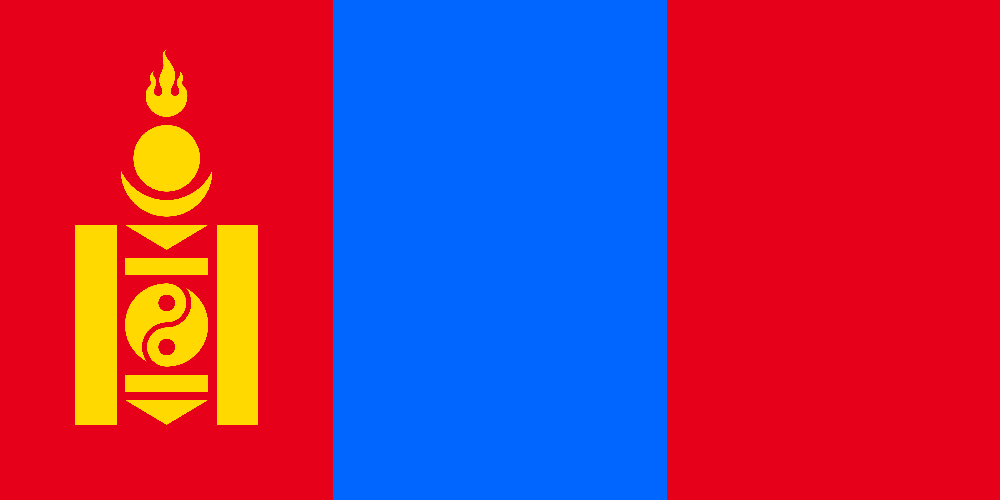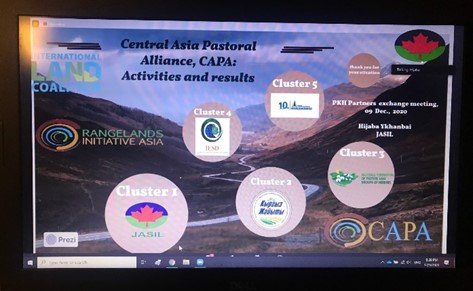The Pastoralist Knowledge Hub (PKH) brings together pastoralists and international actors to integrate pastoralism and pastoralism-related matters into international policy dialogue. One of the key pillars of the Hub is to foster alliances among key partners with a common vision towards achieving sustainable pastoralism and the Sustainable Development Goals (SDGs). The Hub has 40 partners consisting of intergovernmental organizations, public institutions, multi-stakeholder partnerships, research centres, and international, regional and national civil society organizations.
Annually, the PKH holds a partners’ meeting to review its progress, share on activities together with partners on pastoralism across the world, and discuss future initiatives and avenues for engagement.
This year the PKH is calling for a virtual partners’ meeting to share on partners’ activities and discuss some of the biggest highlights of the year, like the Committee of Agriculture 2020 outcome on the endorsement of the International Year of Rangelands and Pastoralists (IYRP), and the request to FAO to mainstream rangelands and pastoralism in its technical and policy programs. This meeting anticipates to continue creating synergies among partners towards the shared vision of improving pastoralist livelihoods, as joint efforts are crucial to achieving effective outcomes.
The PKH Meeting was held on December 8-10, 2020. The second day of the meeting, December 9, continued according to the following agenda (Figure 1).
During the first day of the meeting Presentation of the framework “Pastoralism, making variability work” was introduced by FAO representative and discussion was organized on the framework and contribution by the PKH partners. At the end of the meeting, Discussion on the framework and contribution by the PKH partners was introduced by representative of CELEP.

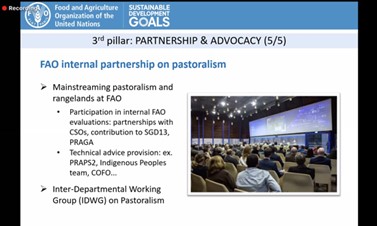
During the presentation of Pastoralism, making variability work presentation on first day of meeting
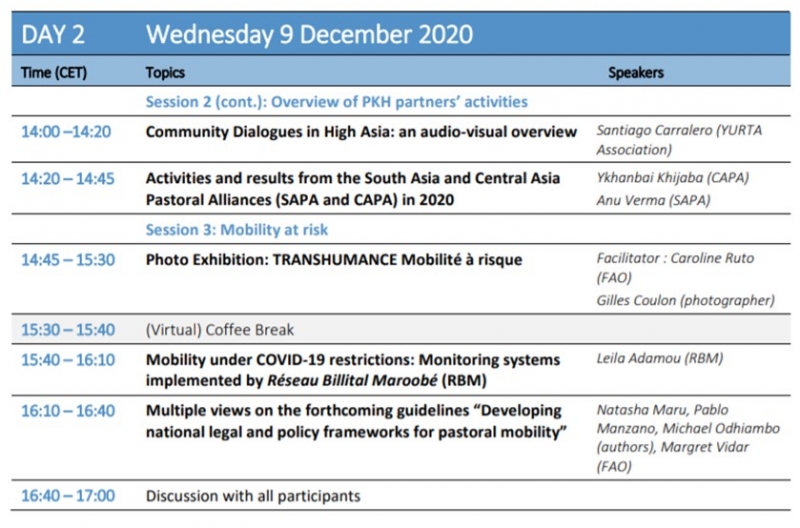
Second day PKH meeting agenda
At the beginning of the meeting, the partners of the Pastoral Knowledge Hub presented and discussed their activity reports.
First, Santiago Carralero, head of the Yurta Association, presented a video on “Community Dialogues in High Asia: an audio-visual overview” which he spoke about the natural features of the Tibetan Plateau, its importance and nomadic herders and yaks, and conferences in Nepal and Kyrgyzstan. It was interesting to find information about the Yak Festival organized in Mongolia. Finally, the future trends of yak countries and young herders were discussed (Figure 2).
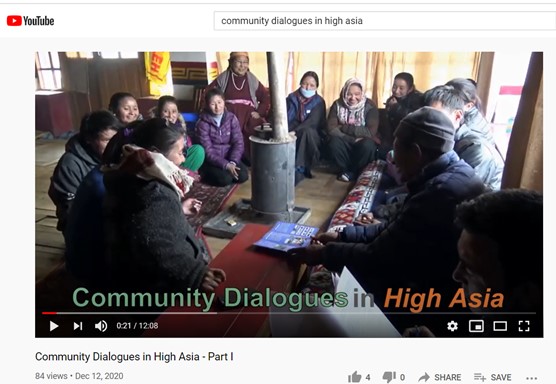
Figure 2. “Community Dialogues in High Asia: an audio-visual overview” video - https://www.youtube.com/watch?v=0cI18tkT0vc
Second: On behalf of the South and Central Asian Herders Association, Ykhanbai Hijaba and Anu Varma discussed “Activities and results from the South Asia and Central Asia Pastoral Alliances (SAPA and CAPA) in 2020 (Figure 3). The report provides an overview of the rangeland legal environment in Central Asia and pasture user group based rangeland management and other topics.
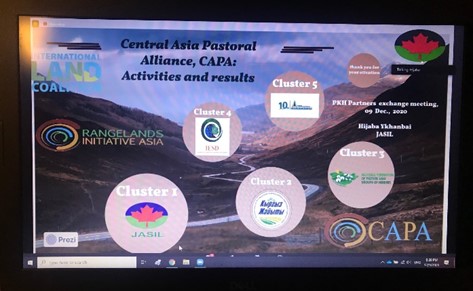
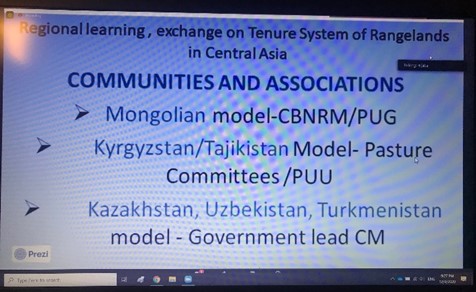
Presentation on “Activities and results from the South Asia and Central Asia Pastoral Alliances (SAPA and CAPA) in 2020” by Ykhanbai Hijaba and Anu Varma.
Third: UN expert Caroline Ruto and photographer Gilles Coulon presented a photo exhibition entitled "TRANSHUMANCE Mobilité à risque".
Fourth: Leila Adamou, presented “Mobility under COVID-19 restrictions: Monitoring systems implemented by Réseau Billital Maroobé (RBM)”.
Fifth: Natasha Maru, Pablo Manzano, Michael Odhiambo (authors), Margret Vidar (FAO) presented on “Multiple views on the forthcoming guidelines “Developing national legal and policy frameworks for pastoral mobility”. At the end of the meeting, all participants participated in the discussion.
On the third of the meeting the presentation about T”he candidature of Transhumance as UNESCO heritage”, “Counting pastoralists: setting up global databases to contribute to the IYRP” and there was discussion on the ways forward for IYRP activities held.

